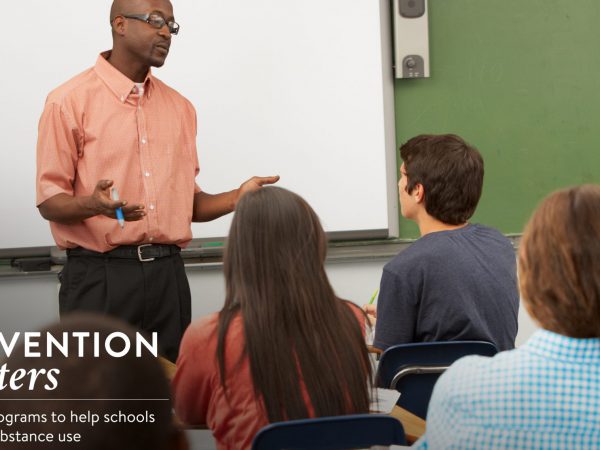Claire Fiddian-Green is the President & CEO of the Richard M. Fairbanks Foundation.
There are many important efforts underway across Indiana to tackle the opioid epidemic. Stakeholders in the public, private and non-profit sectors – first responders, health systems, government agencies, employers and others – are allocating significant resources to help Hoosiers struggling with addiction find effective treatment, to help family members impacted by a loved-one’s addiction receive support and services, to make it harder for people to access opioids illegally, and to reduce the negative health consequences often associated with addiction.
Most of these efforts are focused on addressing the challenges that occur when someone has already become addicted to opioids. These efforts are vitally important, and are already making a difference when it comes to battling the opioid crisis. But we also need to focus our attention on decreasing the number of Hoosiers who start misusing opioids and other substances in the first place – thereby avoiding the human suffering and economic burden that all too often go hand-in-hand with addiction.
Research shows that substance use often begins in middle school and worsens through high school. We believe this means that K-12 schools – where young people spend a large percentage of their time – can and should be part of any comprehensive approach to tackling the opioid crisis and other substance misuse challenges in Indiana.
At the start of 2018, the Richard M. Fairbanks Foundation launched रोकथाम के मामले, a three-year initiative designed to help Indianapolis K-12 schools identify, implement, and develop realistic plans to sustain proven substance use prevention programs in their classrooms. The initiative consisted of a non-competitive planning grant phase and a competitive implementation grant phase. Planning grant recipients received free technical assistance from experts in school-based substance use prevention to assist schools in conducting a needs assessment and preparing a comprehensive implementation grant application.
On August 7, the Foundation was pleased to announce a commitment of more than $10.2 million to help Indianapolis students avoid substance use and improve their social and emotional well-being. The 24 grants awarded through रोकथाम के मामले will help 151 Marion County schools reach an anticipated 71,112 children and teenagers – about 44 percent of all Marion County students – with proven prevention programs by the 2020-2021 school year.
It was clear from the many thoughtful grant applications and well-conceived plans the Foundation received that schools in Indianapolis understand the important role they can play in delivering proven prevention programs to students. The programs funded through रोकथाम के मामले will be incorporated into schools’ existing schedules and equip teachers and school leaders with tools that help students decrease risky decision-making and improve their overall health and well-being during a critical window in their lives.
When it comes to addressing Indiana’s substance misuse crisis, a cross-sector approach is key. K-12 schools can and should play a role by helping to prevent students from experimenting with opioids, alcohol and other drugs – thereby helping our young people avoid the tragic consequences of addiction.
For a full list of grant recipients and funding details, please visit rmff.org/preventionmatters/.



